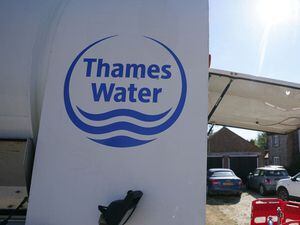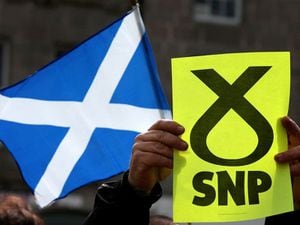Brexit talks between PM and leaders of Scotland and Wales break up without deal
The issues still to be resolved are ‘not insignificant’, Nicola Sturgeon said.
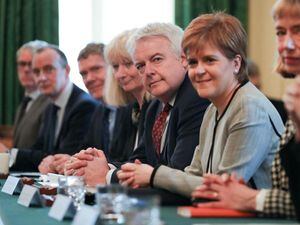
Brexit talks between Theresa May and the Scottish and Welsh first ministers have broken up without agreement.
Nicola Sturgeon said the issues outstanding over legislation that transposes EU law into UK law once Britain leaves are “not insignificant” and warned there was now “real urgency” to reach a deal.
Lack of agreement from Edinburgh and Cardiff would not prevent the EU (Withdrawal) Bill from passing but forcing it through without consent could spark a constitutional crisis within the UK.
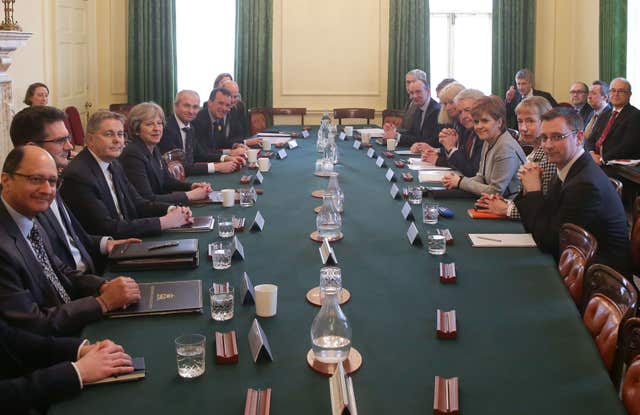
Speaking in Downing Street, the Scottish First Minister said: “There was certainly an indication on all sides that we want to reach agreement.”
“We can’t have our powers restricted or reduced without the consent of the Scottish Parliament,” she told reporters.
Ms Sturgeon said: “The issues that remain between us are not insignificant but neither are they insurmountable.”
She said the UK Government’s concern was that Scottish Parliaments or governments could withhold consent unreasonably “and there is discussion to be had to give assurances that wouldn’t be the case”.
“It’s a matter of trust,” she said, but added: “We are having to trust the UK Government a lot in terms of other matters associated with the Brexit discussions.
“This is about protecting our principles, it’s not about compromising on the principle, it’s about finding compromise that allows the UK Government to abide by that principle, as I think they should, but have some of the concerns that they have got about that addressed and allayed.”
Mr Jones said: “We want to make sure that we come to an agreement on where powers lie and how they are dealt with in the future.
“Progress has been made but I am not yet in a position to recommend to the National Assembly that we should give our consent to the Withdrawal Bill.”
But he added: “I’m hopeful we will be in a position where that will be possible in the next few days – no more than a week or two, I would say, time is running out – but we are not there yet.”
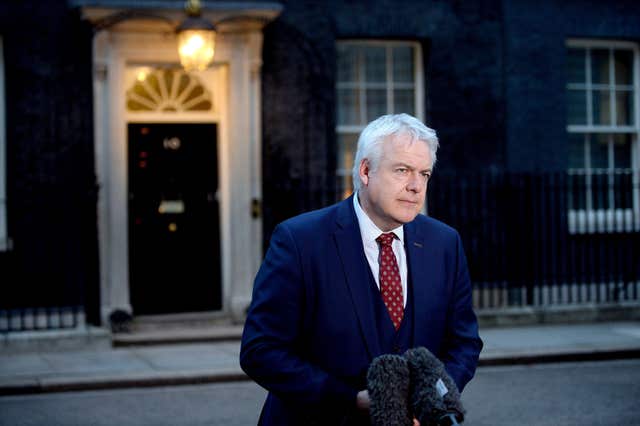
However, the UK Government argues some powers must come first to Westminster so common frameworks can be established across the UK.
Downing Street said the leaders discussed the amendment that has been tabled that would “ensure the vast majority of devolved powers will transfer directly to Edinburgh, Cardiff and Belfast”.
A spokesman the Prime Minister “made clear her commitment to a deal that works for the whole of the UK and protects the security and prosperity of all our communities”.


